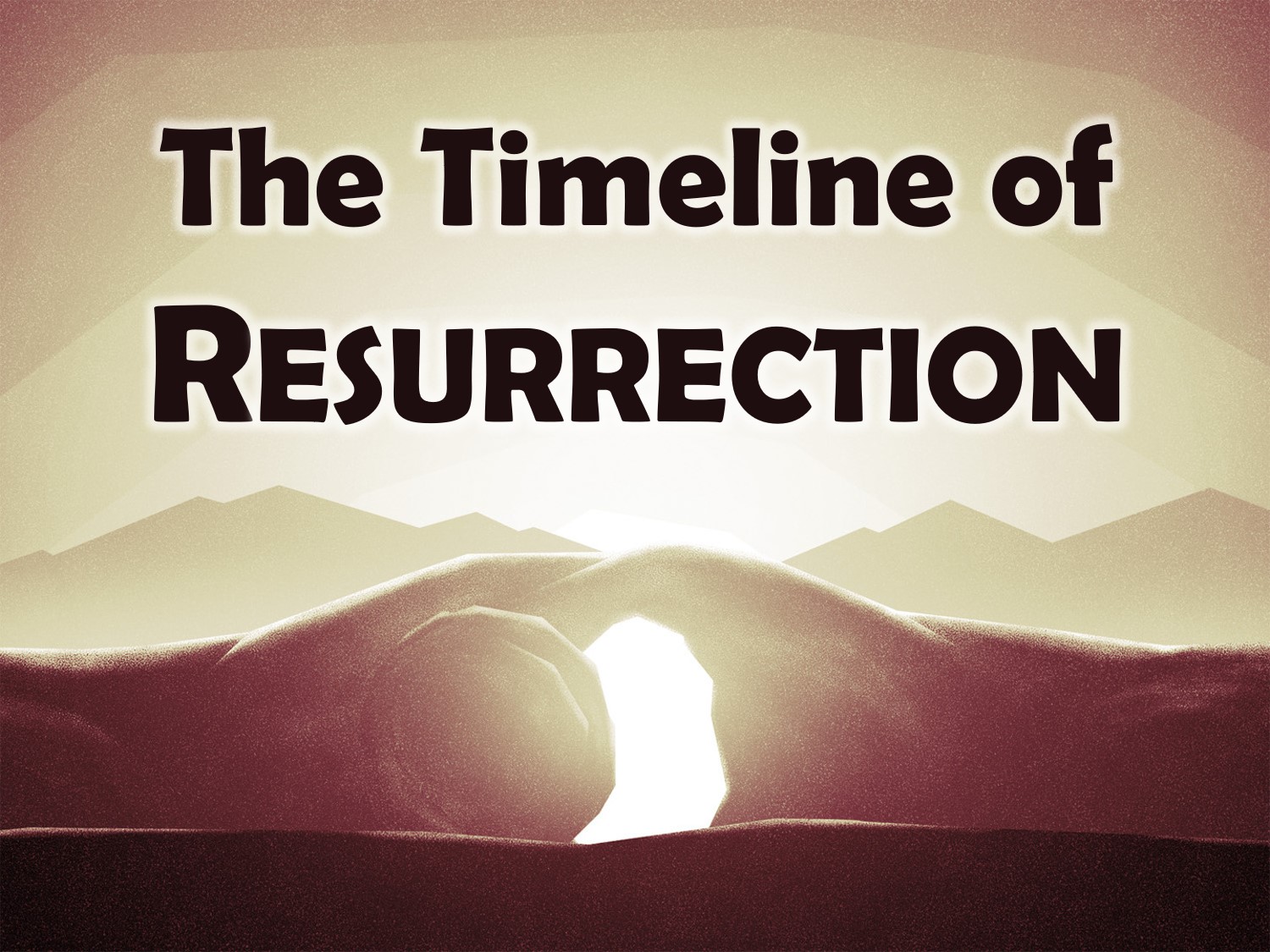Blog
Elections and the Sovereignty of God
Thursday, August 27, 2020
Now that the 2020 presidential election is coming to dominate the news cycle more and more, I find my thoughts turning to what the Bible teaches us about who is in control of such things. Romans 13:1-2 tells us that God appoints all human authorities. Daniel 2:20-21 reveals that He removes and sets up kings. According to Proverbs 20:5, the heart of the king is a stream of water in the hands of the Lord. In short, it clearly is God who decides who will lead any nation.
This does not mean that God will only send wise and benevolent rulers. Exodus 9:16 reports that God raised up Pharaoh, even though he was arrogant and foolish, in order that God’s power might be displayed through his downfall. This is true even for God’s own people. In Jeremiah 13:13, God warns that He will fill the kings of Judah with drunkenness as part of His judgment of their nation. Similarly, Isaiah 3:4 promises that God will send capricious children to be the rulers of His wicked people. Though He leaves us our free will, it is nonetheless His will that is done.
We still should remember this, even though we live in a nation with a system of government that allows us the illusion of control. “Your vote counts!” says every high-school civics class. Well, yes, it is true that we can go to the polls and cast our ballots, but we should not imagine that we or any other human beings are dictating the outcome.
God has not ceased to be the King of kings, nor the Lord of lords. Our leaders, just as the leaders of every other nation, will be the leaders He chooses. Perhaps He will be merciful and send us rulers who will help us on to prosperity and peace. Perhaps He will be just and send us those who will bring us to ruin as part of His judgment on our national sins. In either case, our votes cannot and will not override His purpose. Prayer might. Voting won’t.
Though my children are past it now, I still remember that parents whose kids are in car seats can buy steering wheels for those car seats. Often, little Johnny is enthusiastic about his steering wheel. He’ll spin that thing wildly, honk the horn, and be utterly convinced that he is the one who is driving the car. However, it’s really Dad in the driver’s seat who is determining where the vehicle is headed.
We ought to remember that the same thing is true of our political participation. If you want to study the issues, pick a candidate, and even advocate for that candidate, great! There’s no sin in that, though there is sin in acrimonious political debate on Facebook.
However, we must not forget whose steering wheel is connected and whose isn’t.
The Timeline of Resurrection
Tuesday, August 25, 2020
Recently, I’ve become aware that there is this thing floating around on the Internet called “The Easter Challenge”. The inventor of this challenge is an atheist. He asserts that the Biblical accounts of the resurrection of Jesus contradict each other so significantly that they are clearly false and so provide no basis for belief in Jesus.
If true, this indeed would be fatal to the Christian faith. If we don’t have reason to believe that Christ is risen, we also don’t have reason to be here this evening. However, as always, rather than taking the claims of atheists for granted, we need to evaluate those claims against the Scriptures. Once we do so, it becomes obvious that rather than being impossible, reconciling the various Biblical accounts of the resurrection is quite easy, even trivial.
Nonetheless, I think this is a worthy topic for a sermon. We need to know the truth about this for ourselves, and we also need to know how to rebut those who want to undermine our faith. This evening, then, let’s contemplate the timeline of resurrection.
In this attempt, though, we must keep two things in mind. The first is that even though each gospel account of the resurrection is true, none of them are comprehensive. All of them leave things out because each Evangelist was writing with different purposes in mind. However, the silence of a writer concerning a resurrection event does not prove a contradiction.
Second, here as elsewhere, the gospels are not terribly concerned with strict chronology. They will relate events out of sequence, just as we do when we tell a story, whenever doing so advances their purpose. These out-of-sequence sections also do not establish a contradiction.
Having said that, it’s time to craft our master narrative. There is so much material here that I simply don’t have time to read every passage or discuss every story. I’m only focusing on the parts that supposedly include contradictions. However, I’ve included Scripture citations to everything so you can look them up at home if you so desire.
The first event is THE OPENING OF THE TOMB. It is recorded in Matthew 28:1-4. Some want to suppose that there’s a contradiction here because the earthquake, etc., is recorded after the mention of the women going to the tomb, and none of the other writers mention the earthquake. However, I don’t think that’s the most natural reading. Instead, I think Matthew is parenthetically describing something that had previously happened. If not, the women would be not merely witnesses to the empty tomb. They would have been witnesses to Jesus coming out of the tomb! This is simply Matthew telling the story out of chronological order, something Matthew frequently does.
Second, THE WOMEN COME TO THE TOMB. We find this in Mark 16:1-4. The key event here is that the women, including Mary Magdalene, notice that the stone has been rolled away from the tomb.
Third, MARY MAGDALENE FETCHES PETER AND JOHN. Look at John 20:1-2. This is subtle but important. Mary is with the other women when they see that the stone has been rolled away. However, she does not continue with them to the tomb. Because she is convinced that someone has stolen Jesus’ body, she runs off to find Peter and John. Thus, she is not present for the other women’s conversation with the angel and is not told that Jesus has risen.
Second, it’s worth noting that finding Peter and John does not mean that Mary has gone to all the disciples. Peter and John are staying by themselves, so at this point, Mary has not had contact with the others.
Fourth, while Mary is running to Peter and John, THE OTHER WOMEN TALK TO THE ANGEL. Consider Mark 16:5-8. They see that the tomb is empty, the angel tells them that Jesus is risen, and they leave. Thus, they are not around when Peter and John show up in a bit.
One other note before we leave this passage. Some try to set up a contradiction between Mark 16:8, which says the women told no one, and other passages that say the women told the disciples.
I think, though, that Mark is answering a different question than the other gospels. He’s explaining why the women didn’t go down the street telling everybody that they met that Jesus had risen. They were afraid. They were afraid—with justification—of being disbelieved and probably also afraid of getting imprisoned by the Jewish leadership. So they keep it to themselves until they reach the disciples.
Fifth, JESUS APPEARS TO THE OTHER WOMEN. This is revealed in Matthew 28:8-10. Probably, after this Jesus heads back to the tomb to encounter Mary Magdalene.
Sixth, PETER AND JOHN COME TO THE TOMB. This is recorded in John 20:3-10. They see grave wrappings, but no angel and no Jesus, and they leave.
Seventh, JESUS APPEARS TO MARY MAGDALENE. This story is found in John 20:11-17. Peter and John have cleared out by now, so Mary is by herself. She hasn’t talked to the angel, so she still is confused about what has happened. Jesus resolves her confusion by revealing Himself to her.
Eighth, THE DISCIPLES DISBELIEVE. Here, let’s read Luke 24:9-12. Mary comes to the disciples, the other women come to the disciples, but they aren’t having any of it. Notice, though, that Luke is doing some story-collapsing. He’s combining the story of Mary going to Peter and John about body-snatching with the story of Mary and the other women going to the disciples with stories about the risen Lord.
Some might suppose there’s a contradiction here, but there isn’t. All Luke is doing is summarizing a complicated series of events as quickly as he can so he can get to the resurrection story he really cares about—the encounter on the road to Emmaus. He doesn’t mention previous appearances because that would have pulled the focus away from Emmaus, where he wanted it. He concludes the story with Peter going off by himself (which is true, even if it happened earlier) to explain how Jesus appeared to Peter and not to the others.
Ninth, JESUS APPEARS TO PETER. This is only found in the gospels in Luke 24:34, though it also is recorded in 1 Corinthians 15. Note, by the way, that even though Luke knows this happened before Jesus appeared on the road to Emmaus, he tells the story so that it is revealed afterward, so as not to detract from his main resurrection appearance.
Tenth, JESUS APPEARS ON THE ROAD TO EMMAUS. We see this in Luke 24:13-35. This is the centerpiece of Luke’s resurrection account, just like Mary Magdalene is the centerpiece of John’s. He gives it far more time than anything else in the narrative.
Eleventh and last, JESUS APPEARS IN THE UPPER ROOM. Here, let’s go to John 20:19-20. Notice first of all that the doors are locked for fear of the Jews. The disciples are very concerned about attracting notice from the authorities. Second, by this point everybody but Thomas is gathered together, they’re convinced something strange has happened, and Jesus’ appearance only seals the deal.
Did you notice, brethren, how neatly the pieces from these four accounts fit together? It’s because they’re all reporting the same historical event! Just as contradiction would cast the story of the resurrection into doubt, so the harmony of these stories affirms our faith. As John observes in John 20:31, these things were written so that we might believe.
Why Does God Delay?
Monday, August 24, 2020
At some point in their lives, all Christians have to deal with the disappointment and frustration of God not answering their prayers on their timetable. They want something that is godly and good, they pray for it, and. . . nothing.
When we are wrestling with this problem, it’s useful to consider the story of the resurrection of Lazarus in John 11. All of us remember the triumphant conclusion, but it’s easy to overlook the less-than-triumphant beginning. In John 11:4, Jesus receives a message from Mary and Martha about Lazarus’ illness, but rather than leaving immediately for Bethany, v. 6 tells us that He stayed two days later where He was. As a result, when He arrives in Bethany in v.17, Lazarus already has been in the tomb for four days.
Unquestionably, Jesus could have acted immediately to heal Lazarus from a distance. Failing that, at least He could have left immediately, showing proper sympathy for Lazarus’ family. Instead, He kicks around for 48 hours, which results in great suffering for people He loves. When He does show up, Mary and Martha are not best pleased with Him.
However, a careful consideration of Jesus’ actions here reveals not laziness but rather pursuit of a greater goal. The resurrection of Lazarus is the miracle that finally pushes the leaders of the Jewish nation over the edge. John 11:45-53 reports that after it takes place, the chief priests and Sanhedrin become so afraid of Jesus’ popularity that they decide He has to die. If they don’t reach that conclusion, Jesus isn’t killed on the next Passover as the Lamb of God.
Thus, at that point in His ministry, Jesus is compelled to work a miracle that will force His enemies’ hand so that His death follows the divine timetable. Healing a live Lazarus wouldn’t have been remarkable enough to make them act. Jesus healed lots of people.
For that matter, raising a Lazarus only two days dead (as He could have done if He had left immediately) wouldn’t have done the trick either. The Jews would have been aware, as we are, of the Rule of Three. Generally, humans can survive for 30 days without food, three days without water, and three minutes without air.
Thus, if Lazarus had been in the tomb for only two days, the Jewish leaders plausibly could have argued that he wasn’t truly dead. Given that Lazarus was one of Jesus’ disciples, collusion was a reasonable possibility. In our own time, faith healers have tried similar stunts!
Raising Lazarus after four days in the tomb, though, made for an irrefutable miracle. After so long, the Jews wouldn’t merely have known that Lazarus was dead. Because the tomb was not hermetically sealed, they would have been able to smell that Lazarus was dead. When Martha objects to removing the stone in John 11:39 because of the stench it would raise, she has reason for so doing! Conversely, when Jesus restores life to the decomposing corpse, nobody can deny what just has happened.
Today, we cannot speculate on the reasons why God might delay or deny the answer we seek in our prayers. However, we must remember that from His perspective, things look very different than they do from ours.
Rejoicing in an Evil Report
Friday, August 21, 2020
The other day, a Facebook friend of mine posted the following quotation from C.S. Lewis’s Mere Christianity, something she apparently does annually.
"Suppose one reads a story of filthy atrocities in the paper. Then suppose that something turns up suggesting that the story might not be quite true, or not quite so bad as it was made out. Is one’s first feeling, `Thank God, even they aren’t quite so bad as that,’ or is it a feeling of disappointment, and even a determination to cling to the first story for the sheer pleasure of thinking your enemies as bad as possible?
“If it is the second then it is, I am afraid, the first step in a process which, if followed to the end, will make us into devils. You see, one is beginning to wish that black was a little blacker. If we give that wish its head, later on we shall wish to see grey as black, and then to see white itself as black. Finally, we shall insist on seeing everything - God and our friends and ourselves included - as bad, and not be able to stop doing it: we shall be fixed for ever in a universe of pure hatred."
In a time when people across the political spectrum seem more interested in believing evil about their enemies than discovering what is true, this certainly has a great deal of resonance! So far as it goes (and it may go further in the book, which I neither own nor have read), I think Lewis’s analysis is astute. Indeed, Christians must beware of the corrupting power of hatred!
However, we also ought to press the inquiry forward another step. It is not enough to identify hatred and contempt for our enemies as seductive. We must ask why it should be so.
The answer, I think, is one of comparison. The more vile our enemies are (or we make them out to be), the more brightly we and our friends shine. Next to the manure pile, even the soiled garment appears clean. The lesser of two evils often comes to resemble a positive good.
The benefits of adopting such a stance are manifold. We no longer have to subject those who are on “our side” to searching moral inquiry because, well, look at the other guy!
Most especially, we no longer have to subject ourselves to searching moral inquiry. Our enemies, rather than the word of God, have become our standard for self-evaluation. In comparison to the picture we paint of them, we have no flaws worth mentioning. There is nothing we need to change; instead, we can bask in our own self-righteousness.
Of course, when the hearts of God’s people are given over to hatred and self-righteousness, the devil has won completely. We have no justification for maximizing the difference between ourselves and our enemies. We too once were deceived, enslaved, hateful and hating one another. Rather than contempt, we must respond with recognition, sympathy, and pity.
The difference between us and anybody else is not our inherent goodness. It is that we have known the light of the grace of God, which cleanses and instructs us. If God could love and be merciful to me when I was His enemy, I must love and be merciful to my own enemies.
Admittedly, humility and self-sacrifice are not as enjoyable as contempt and self-righteousness. However, we have no hope for true righteousness apart from them.
Let No One Leave Hungry
Thursday, August 20, 2020
Even though Facebook does its best these days to compete with television for the title of “vast wasteland”, one occasionally encounters a gem on it that—hopefully—justifies reading through all the rest. For example, the other day, a friend of mine posted this description of his grandmother:
What my grandmother lacked in money she made up for in love.
She was proud to say that no one came to her home hungry and left the same way. Her first words were always, “Want something to eat?”, and her last, “Want something to take with you to eat on?”
Many of us have been blessed by knowing godly women of a similar temperament. My own mother was that way. My sister still likes to tell the story of how she and her husband were leaving my parents’ house, and my mother kept trying to give her something.
“Would you like this?”
“No, Mom, we don’t need that.”
“How about this?”
“No, thank you. Don’t need that either.”
And so forth. Finally, in desperation, my mother picked up one of her potted plants off the front porch, held it out to my sister, and asked, “Well, would you like a pansy?”
Some find joy in accumulating. Others find it in giving. It’s no secret, I don’t think, which of these attitudes is godlier.
Indeed, the spirit of giving is the spirit of Christ. As Paul observes in 2 Corinthians 8:9, He gave everything He had so that we might become rich. He sacrificed Himself so that He could fill our deepest needs.
As disciples, we could do far worse than taking the words of my friend’s grandmother for our own. We ought to go through our lives doing our best to make sure that no one leaves us hungry. Sometimes, this occurs without metaphor, through a literal filling of bellies. I know I appreciate it when brethren share their food with me!
However, it ought to be much broader than that. Thankfully, we live in a country where physical hunger is rare. However, the hunger pangs of the American soul seem more piercing today than ever before. So many feel lonely, isolated, depressed, overlooked, and worthless. Doctors prescribe antidepressants by the bushel, yet the epidemic of misery continues.
Perhaps the problem is that we have become so affluent that we have forgotten the value of the things that money can’t buy. I recall reading some years ago that the average American only invites someone else into their home once a year. It is far worse to live in a mansion that is empty of human contact than to live in a cottage that is filled with love and laughter and friends.
None of us can change our society singlehandedly, but we can change the lives of the people around us. We can make sure that they don’t leave us hungry. We can show them that they matter by the way we speak and the way we listen. We can expand an everyday contact into a meaningful one. We can leave a life a little brighter than it was five minutes ago, not through any special skill or talent, but simply through love.
This manner of living doesn’t lead to any earthly recognition, though a surprisingly large number of people may show up for your funeral. It will not attract the attention of the miserably self-centered world, though it will attract the Lord’s attention. Nonetheless, not letting anyone leave hungry is one of the few things that we can do with our lives that will make an eternal difference in the lives of others.
Do not despise the day of small things. In the end, the small things are the ones that matter.


